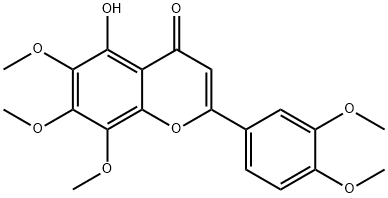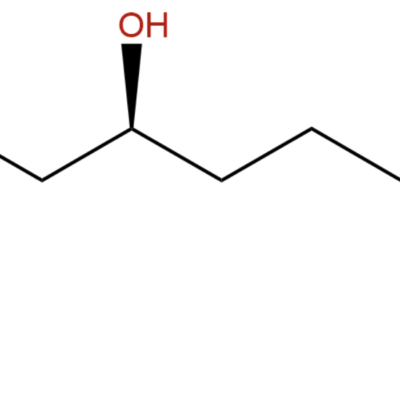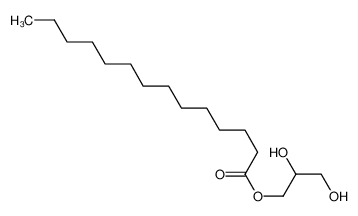$ 360.0
Quantity: 100 MG
In stock
Description
Product name: 5-O-Demethylnobiletin
Synonym: 5-Hydroxy-3′,4′,6,7,8-pentamethoxyflavone
Catalog #: BP0088
Purity: 98%
CAS No.: 2174-59-6
Molecular Formula: C20H20O8
Molecular Weight: 388.372
Botanical Source: Citrus reticulata Blanco
Analysis Method: HPLC-DAD or/and HPLC-ELSD
Identification Method: Mass, NMR
Storage: Store in a well closed container, protected from air and light. Put into refrigerate or freeze for long term storage.
Whenever possible, you should prepare and use solutions on the same day. However, if you need to make up stock solutions in advance, we recommend that you store the solution as aliquots in tightly sealed vials at -20℃. Generally, these will be useable for up to two weeks.
The product could be supplied from milligrams to grams
Inquire for bulk scale.
Description:
5-O-Demethylnobiletin has anti-inflammatory activity, it may act through a direct inhibition of 5-LOX, without affecting the expression of COX-2.
References:
Planta Med. 2006 Feb;72(2):136-42.
Anti-inflammatory activity of 5-O-demethylnobiletin, a polymethoxyflavone isolated from Sideritis tragoriganum.
METHODS AND RESULTS:
We have studied the effect of 5-O-Demethylnobiletin( 1) on both the inflammation of mouse ears induced by repeated application of 12- O-tetradecanoylphorbol 13-acetate (TPA) and the acute mouse paw oedemas induced by carrageenan and phospholipase A (2) (PLA (2)), and determined its activity on 5-lipoxygenase (5-LOX) and elastase release/activity. Compound 1 reduced the oedema formation, cell infiltration, and tissue damage in the inflammation induced by TPA in mouse ears, along with the acute oedema induced by carrageenan in mouse paws and the acute PLA (2)-induced oedema in mouse paws. The flavone inhibited leukotriene B (4) formation in rat neutrophils and elastase release in human neutrophils, but did not reduce the expression of cyclooxygenase-2 (COX-2) in murine RAW 264.7 macrophages.
CONCLUSIONS:
These experimental results suggest that 1 may act through a direct inhibition of 5-LOX, without affecting the expression of COX-2.




